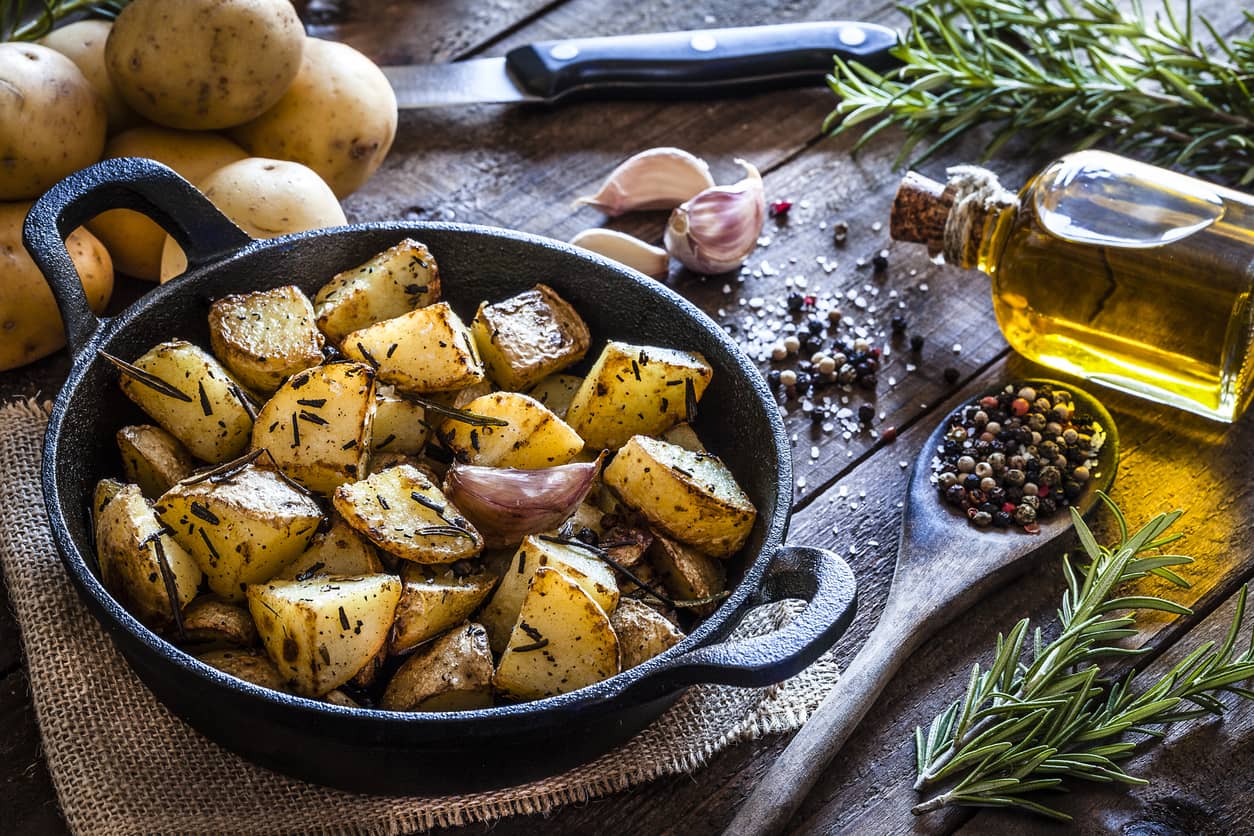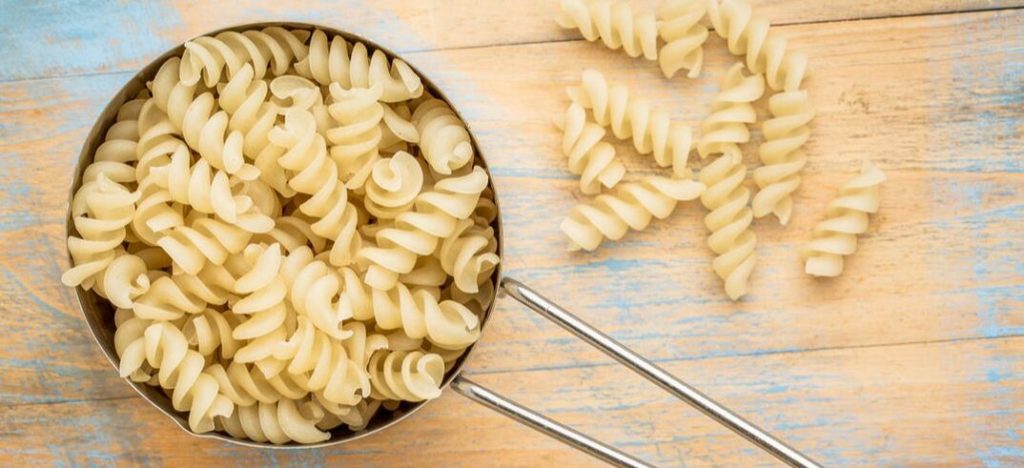
BLOG
The Big Insulin Myth

In a paper published in 2018, titled ‘Is there an optimal diet for weight management and metabolic health?’, the authors rather refreshingly concluded that ‘Human beings prefer things to be simple, and therefore there is a desire to pinpoint the one best diet that solves everything’. The harsh reality, however, is that ‘there is no one-size-fits-all strategy that will work for everyone’.
Before we delve into the scientific literature and address some of the popular claims surrounding low-carb diets, let’s first acknowledge the principle for body fat loss and gain. Meaningful changes in body composition are most closely related to energy balance over time. Thus, the fundamental principle governing meaningful fat loss is adherence to an appropriate and sustained energy (calorie) deficit.
In simple terms, if we expend (burn) more calories than we consume, we expect body fat levels to reduce. Many dismiss this fat-loss principle, claiming that there are alternative factors of greater importance at play and that energy balance is not the primary determinant with regards changes in body fat levels.
Bodyscan has a great many clients who have achieved consistent – even remarkable – fat loss with a low-carb and/or high-fat diet. Some of them believe a low-carb diet is superior to a high(er) carb one. Specifically, many low-carb/high-fat proponents believe that ‘insulin causes fat storage and a diet with low-carbohydrate reduces insulin, ergo more body fat loss’.
But the insulin argument just doesn’t hold water. Or fat!
Here’s why.

Insulin is a storage hormone that regulates the levels of glucose in your blood. Following a carbohydrate-containing meal, insulin is released from the pancreas allowing the glucose in your blood to enter your liver, muscle and fat cells. What’s important is that insulin can be secreted by both carbohydrates and protein. In fact, one study found beef to be as potent a stimulator of insulin as brown rice.
Insulin levels are regulated throughout the day in response to meals; it goes up during the hours after a meal and back down during fasting or extended periods between meals.
Many low-carbers have read that insulin inhibits the breakdown of body fat (lipolysis) and stimulates the creation of fat (lipogenesis). Although true from a mechanistic standpoint, changes in body fat are determined by net fat balance (fat storage minus fat oxidation) over the course of days/weeks/months. That is, the total amount of body fat gained depends on whether you are in a calorie surplus or calorie deficit.
The process of converting carbohydrates to fats (known as ‘de novo lipogenesis’) is an energy-costly process and does not occur in most realistic scenarios. Dietary fat, on the other hand, does not need to be converted and is stored in adipose tissue far more efficiently.
Carbohydrates will contribute to fat gain if they’re part of a diet that leads to an excessive calorie intake (calorie surplus) over time.

A study by Hall and colleagues finally put a nail in the insulin-hypothesis coffin.
In a tightly controlled setting (in a metabolic ward), the study showed that carbohydrate restriction was not advantageous for fat loss. With calories and protein constant during a 30% calorie deficit, subjects who restricted fat intake lost a little more body fat than those who restricted carbohydrate.
A more recent, year-long randomised control trial found that a low-carb and a low-fat diet produced similar weight loss and improvement in health markers. Insulin production was also found to have no impact on predicting weight loss success. The results of this study contribute to a large body of evidence suggesting that, for fat loss, neither low-carb nor low-fat is superior – once total calorie intake and protein intake are equated.
If insulin and carbohydrate consumption on their own were truly the cause of the obesity-epidemic, why are there numerous tribes across the world who eat high carbohydrate diets and are devoid of obesity-related diseases? Some examples include the Okinawans of Japan, Kitavans of the Pacific Islands, and Kuna Indians in Panama. The Kitavans, who consume a diet with about 70% of calories coming from carbohydrates, are described ‘by extreme leanness (despite food abundance)’.

But with overwhelming evidence showing no meaningful difference between a low-fat diet and a low-carb for fat loss success, why do so many people (Bodyscan clients among them) get fantastic fat loss results going on a low-carb diet?
Well, restricting carbs from the diet leads to a reduction in a whole host of calorie-dense foods: pizza, burgers, biscuits, pastries and doughnuts, to name but a few. And don’t forget that all of these foods contain dietary fat too! The combination of both dietary fat and carbohydrate together makes things tasty, and the more rewarding a food is, the easier it is to over-consume.
Restricting foods like those above can often automatically improve the nutrient density/quality of the diet. Additionally, consuming fewer carbs may result in an increase in protein intake, which in turn can lead to a reduction in total calories, creating an energy imbalance. As a result, fat loss shortly ensues.
The best diet is the one you can stick to, so if cutting carbs helps you eat less and it works for you then keep doing it. But if reducing carbs negatively affects your performance, makes you feel miserable, moody, craving bread, rice and pasta and always hungry, consider some alternatives.
A low-carb diet works wonders for some. Is it an absolute necessity for fat loss and does it guarantee success for everyone, in every situation? Definitely not!
A DEXA scan at Bodyscan
The post-scan consultation at your first Bodyscan appointment (the Baseline) will bring your results alive and give you realistic, personal, achievable goals. We will also dispel a lot of myths around nutrition to accelerate and simplify your fat-loss and give you tips to optimise muscle-building.
As we say above, fat-loss is fundamentally a question of calories. If ‘calories in’ is different to ‘calories out’ then a change in body fat (and therefore weight) will occur. We will use our body composition calculator with your DEXA results to give a calorie target and timeline to achieve your goal. This DEXA information video explains the fundamental principle of fat loss and why a DEXA scan will give you the best calculation for how many calories you should consume to reach your target.
With over 17,000 scans under our belt we have seen the results of just about every diet going and can verify that the fundamental principle is borne out in practice. There may be some shades of grey but anyone who tells you you can eat 5000 calories of fat and not get fat is talking out of their hat!
You can book your first scan here (and get a 10% discount code by first downloading the free e-book below).
Kevin Garde
Bodyscan Consultant and Nutritionist




Leave a Reply
You must be logged in to post a comment.